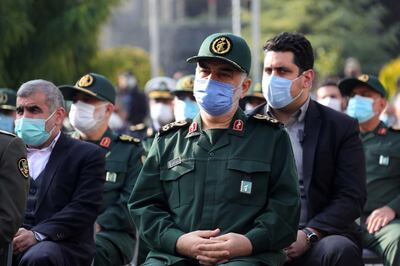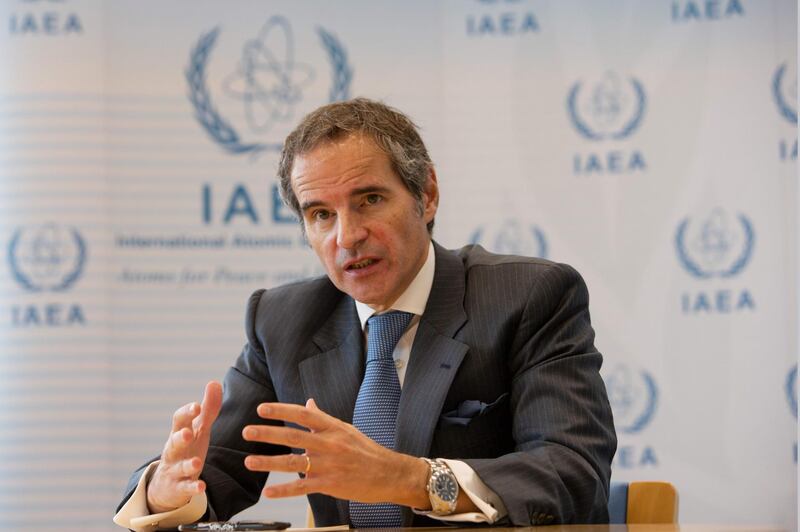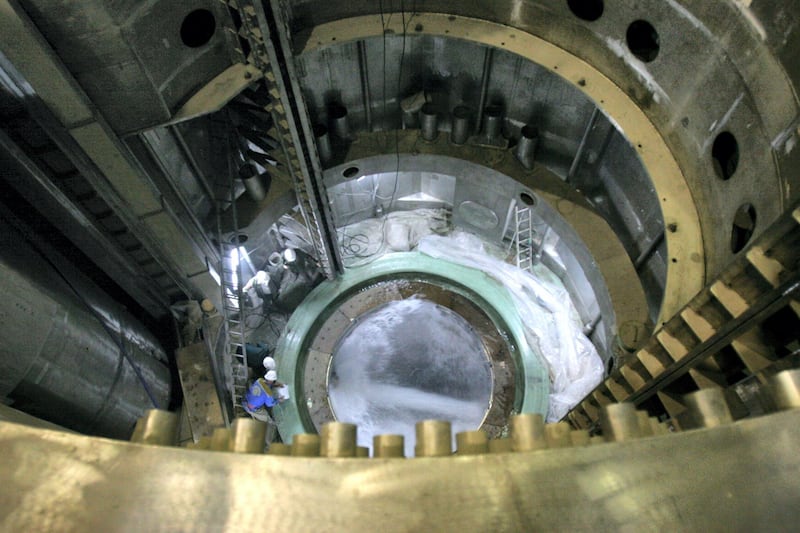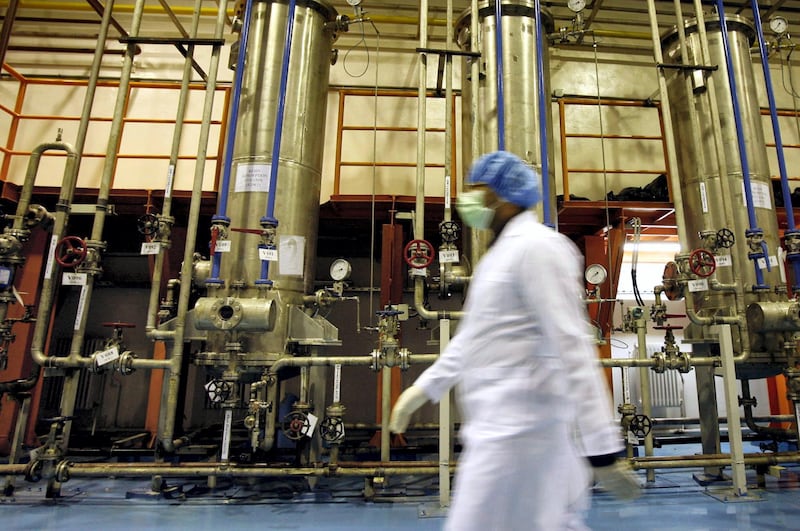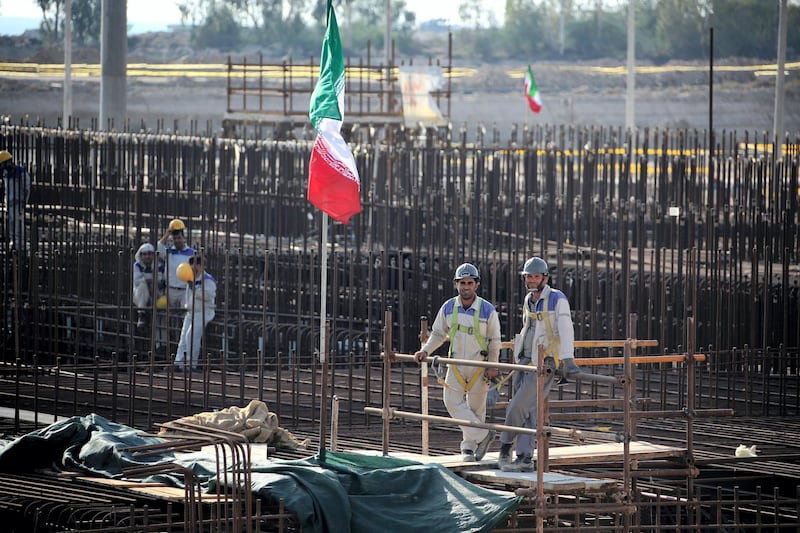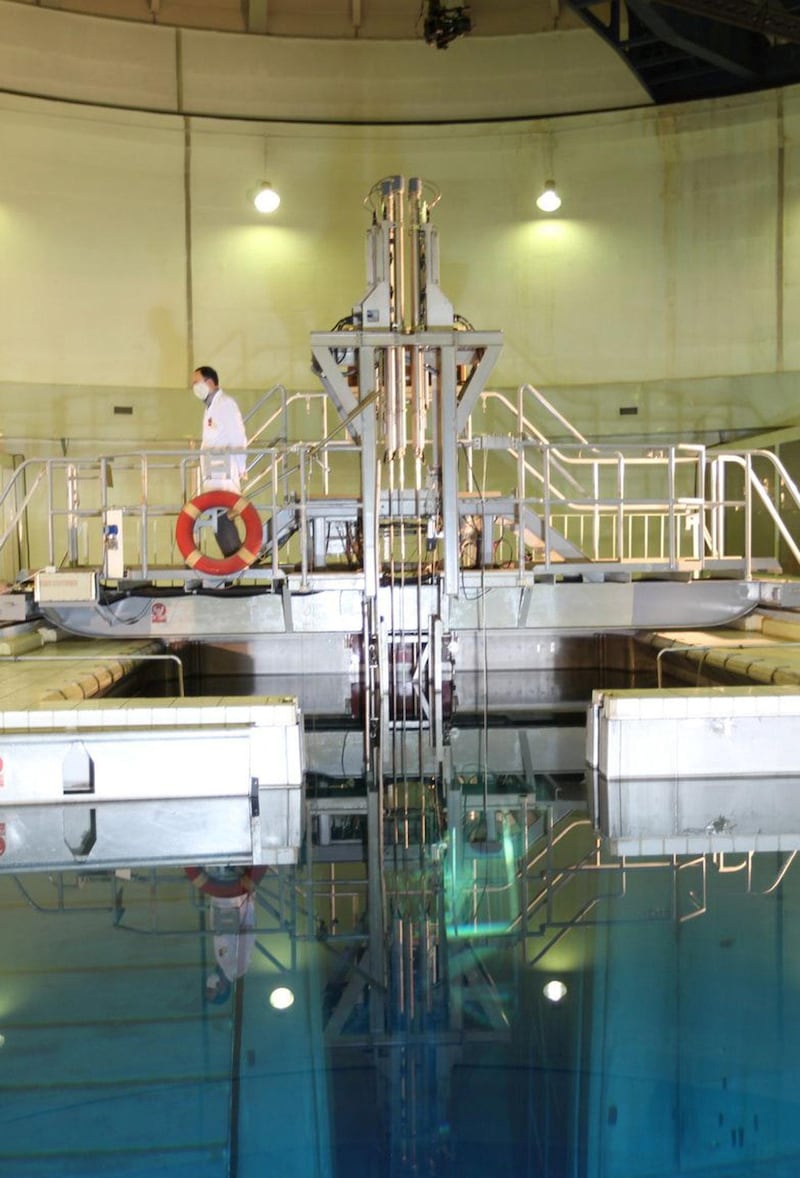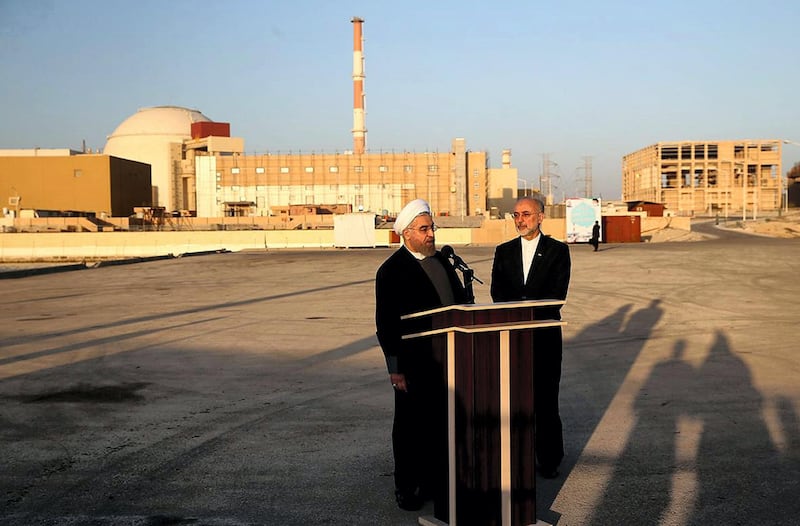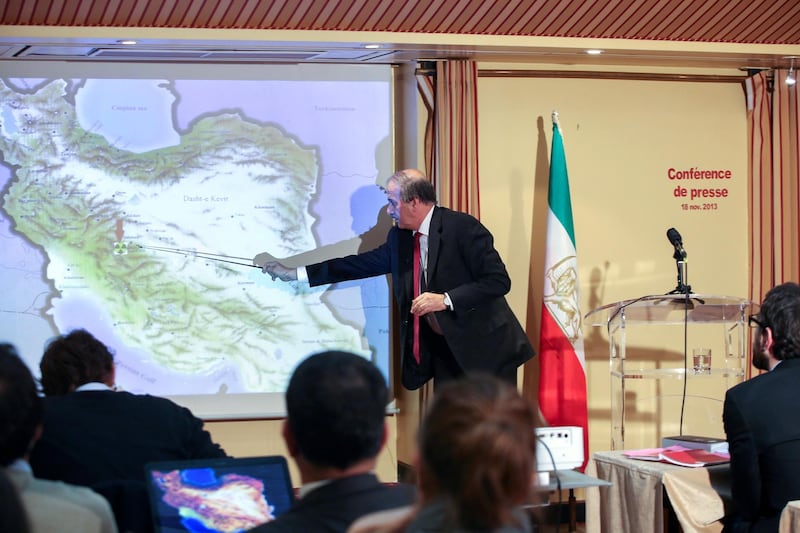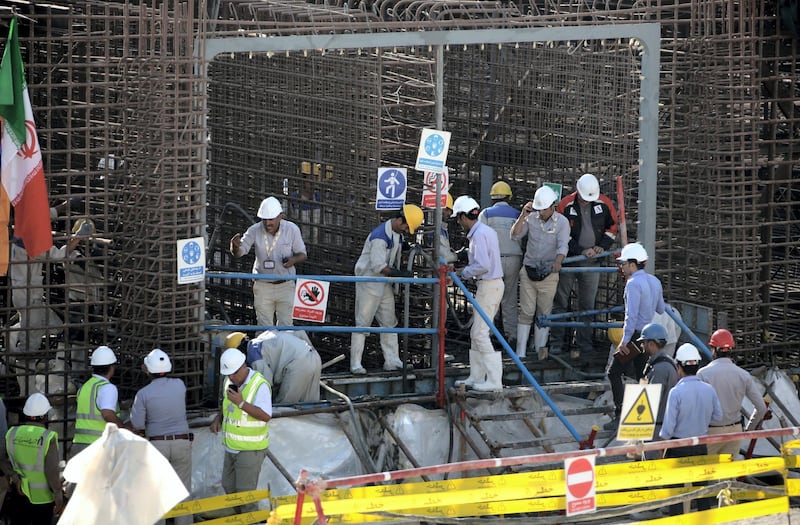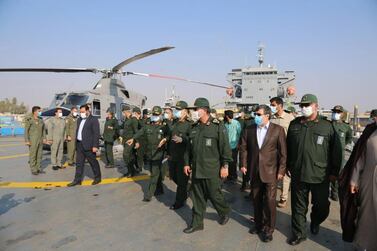Iran has nothing to gain from ending inspections of its nuclear sites, the head of the UN's nuclear watchdog said.
International Atomic Energy Agency director general Rafael Grossi issued the appeal in response to calls by Iranian MPs to stop inspections after a top Iranian nuclear scientist was assassinated on November 27.
"We understand the distress but at the same time it is clear that no-one, starting with Iran, would have anything to win from a decrease, limitation or interruption of the work we do together with them," Mr Grossi said in an interview with AFP after a year in office.
Mr Grossi, 59, said his agency had not yet received any signal from Iranian authorities that anything would change regarding inspections after the killing of Mohsen Fakhrizadeh.
On Sunday, Iran's parliament demanded that inspections were halted, another potential retreat from a key commitment in the country's 2015 nuclear deal with world powers.
"This is not the first time that parliamentarians have expressed themselves in this way or in very similar ways," Mr Grossi said.
"We haven't received any indication of restrictions or limitation of their co-operation with us. I do not see any reason to believe that this would be the case now."
The biggest inspection effort
Mr Grossi said his agency's extensive inspections regime was essential if the outside world was to have assurances about the nature of Iran's nuclear programme.
Fakhrizadeh was buried on Monday, three days after he was assassinated on a road outside Tehran.
"Let me say that we abhor violence of any type. We are an international organisation for peace and security," Mr Grossi said.
The killing could put more strain on diplomatic efforts to salvage Iran's 2015 nuclear deal, which has been disintegrating since US President Donald Trump withdrew his country from it two years ago.
Iran has been one of the thorniest problems Mr Grossi has had to tackle in an eventful year since taking office.
"They have a very large nuclear programme that requires one of the biggest, if not the biggest, efforts in terms of inspection. Without that the instability in the region would be far higher," Mr Grossi said.
A high point during his leadership was his trip to Tehran in August, which ended in an agreement to allow inspectors from the agency to visit two sites where undeclared nuclear activity may have taken place in the 2000s.
Tehran denied access to the sites for months.
"I was served with a denial of access to two sites barely 40 days into the job, something that had never happened before in the history of the IAEA," Mr Grossi said.
He said some member states and analysts thought his gambit of flying to Iran for talks was a risk.
But it paid off and won him plaudits in Vienna's diplomatic circles.
Mr Grossi said there were still unanswered questions about the presence of nuclear material at an undeclared site in the Turquzabad district of Tehran province.
"I do not want to dramatise but it is important that we get clarification," he said.
While he did not set a deadline for Iran to provide the necessary information, Mr Grossi said "a sense of urgency is clear on my side".
The site has been under discussion for almost two years now, he said.
Mr Grossi said his proudest achievement was that the agency managed to keep going despite the challenges posed by the coronavirus pandemic.
"I had to argue my way with foreign ministers, I had to hire private planes to send my inspectors. It wasn't easy," he said.
Mr Grossi said he hoped the agency would be a priority for the government led by US President-elect Joe Biden.
